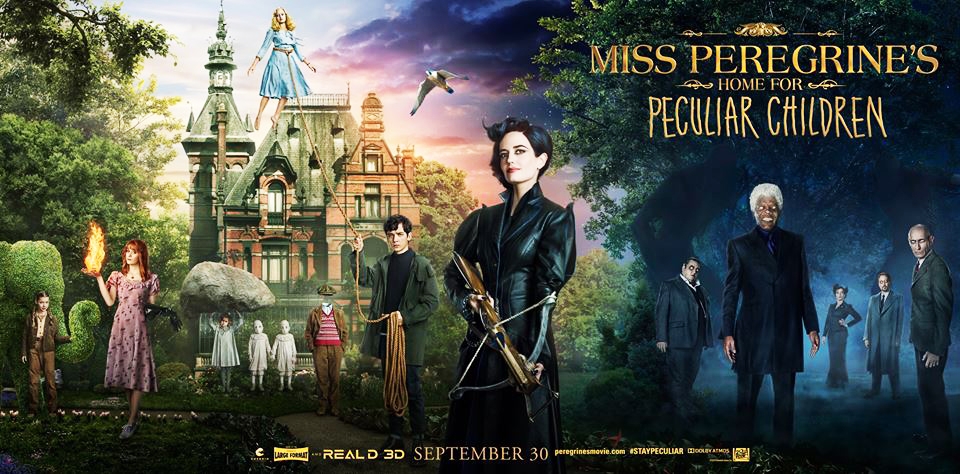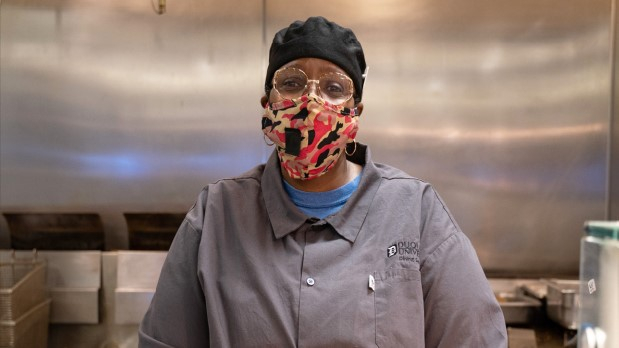
Katia Faroun | Features Editor
03/11/2021
On Monday, celebrations rang out across the world (and social media) in honor of International Women’s Day. Established in 1911, this worldwide holiday celebrates the cultural, social, economic and political achievements of women.
This year featured the unique theme “Choose to Challenge,” a rallying cry for women to uplift each other and continue to raise the bar for all members of society. This week, The Duke honors three of the iconic women whose leadership and presence serve as examples of female excellence across campus.
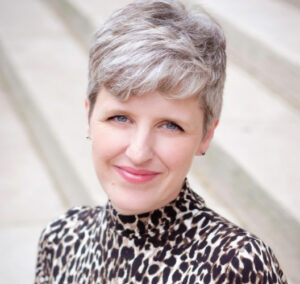
Caron Daley
Being a leader is part of Caron Daley’s DNA. Coming from generations of music educators, including her mother and grandmother, she was taught from the start about the importance of female leadership.
Now, as the director of choral activities at the Mary Pappert School of Music and one of the select few female choir conductors out there, Daley has the opportunity to show and teach others the strength and beauty of being a female leader.
For Daley, feminism is about more than equality — it’s about equity and granting equal access to women all across the playing field.
“Equity, of course, referring to how do we level the playing field, how do we get women access to things, how do we prioritize women so that they can have better access to things,” Daley said.
And it’s rooted in her work. Daley is a firm believer in the power of community and knows how necessary encouragement from mentors is for young students. By creating programs that gather women educators and students in the music field and being a mentor herself, Daley is able to channel what she’s learned from her own experiences into the growth and development of others.
“When we think about in my field, it’s been largely a male-dominated field, so we can’t just say, ‘Women, you’re welcome to enter this field,’ we actually have to create support so that women will enter the field and then will succeed in the field,” Daley said.
One of the biggest lessons Daley’s learned about her role as a woman is that sacrifices don’t need to be made. Not only is she a professor and a conductor, she’s also a wife and a mother to her 2-year-old son, and she didn’t need to give up either position in order to succeed.
“You can make tenure, you can be a leader in your respective field and have a family, and you don’t have to sacrifice either one of those things,” Daley said.
A large part of feminism for Daley is the celebration of femininity.
She recognizes that women have their own unique strengths, and bringing those to the table is essential in encouraging success for women.
“It’s what is it that women do really well, and let’s let that be celebrated.”
Patricia Patterson
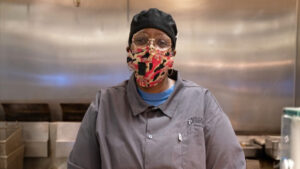
A century ago, life was different for women.
They couldn’t vote, didn’t have fair access to jobs and if they did find work, they earned far less pay than men.
This is the world Patricia Patterson’s grandmother was born into 105 years ago, and the change the world has seen since then reflects Patterson’s pride and hope in the expansion of women’s rights.
“We came a long way,” Patterson said.
For this reason, Patterson doesn’t take for granted the opportunities she’s had in her life. She’s been a grill cook at the Incline since 2013 and is grateful to be able to live in a world where women can get jobs instead of being limited to caring for their homes or families.
In her eyes, feminism means equality: in job access, in pay and in their rights. And she sees that while women have seen a lot of progress over the past century, there’s still room for improvement.
“We’re not there yet, but we’re almost there,” Patterson said.
Living out her beliefs regarding feminism looks like welcoming everyone and inviting them to the table, no matter their skin color or religion. Patterson’s a Christian, and for her, it’s important to love others and treat them the way they’d want to be treated.
The biggest influence on her life and her perception of feminism, though, has always been her family. Without the help of her aunt, Patterson never would have applied for her position at Duquesne, and her grandmother’s challenging experiences and the wisdom that comes from being 105 years old continue to inspire her daily.
“She’s a strong woman from it, and I want to believe I’m a strong woman too,” Patterson said.
Kristine Blair
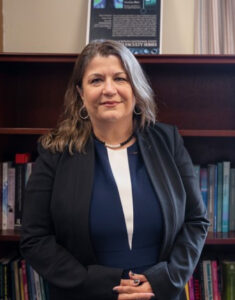
For Kristine Blair, intersectionality is at the heart of what she does.
From mentoring students on teaching with technology to being the dean of the McAnulty School of Liberal Arts, her mission has always been to bridge the gap between individuals and their idea of success.
It’s her identity as a feminist that got Blair committed to social justice, and she found her niche in training students of different backgrounds to use technology well in teaching.
“We often think that technology is universally accessible to undergraduate students, and in my experiences, I found out that was far from the case,” Blair said.
What she found in her 20 years of working towards digital accessibility is that cultural differences often prevented women in particular from gaining access to technology and being receptive to its benefits. Not only did this discovery jump start her passion for social justice, it also encouraged her to find the value in mentoring relationships among women and helped her see how much of an impact people’s differing backgrounds have on them.
“Feminism is not just an issue around women or gender,” Blair said. “Very often, it needs to be far more intersectionality to understand the differing lived experiences that women have.”
This awareness influences her perception of what representation is: a conglomeration and collaboration of people with different perspectives, backgrounds and life experiences. And she hopes to implement this in her role as dean of the liberal arts school and a leader of its students.
“Part of it is to come up with a leadership and management style that is cooperative, coalition-building — is one that is attuned to listening and learning and ensuring that there is a diversity of perspectives represented at the table,” Blair said.

